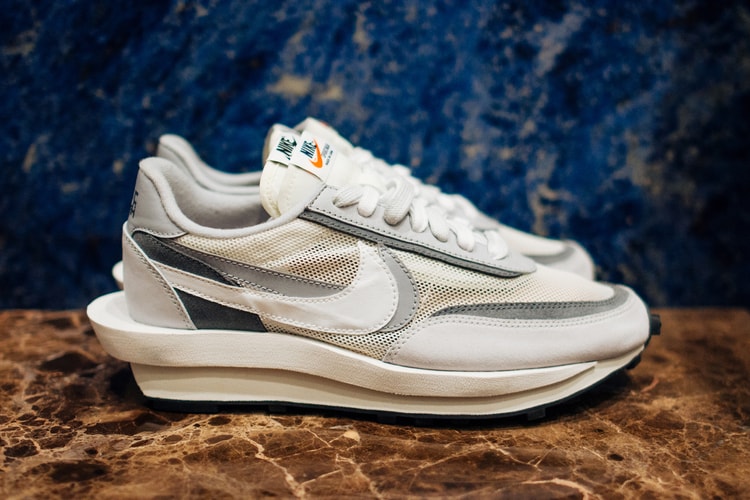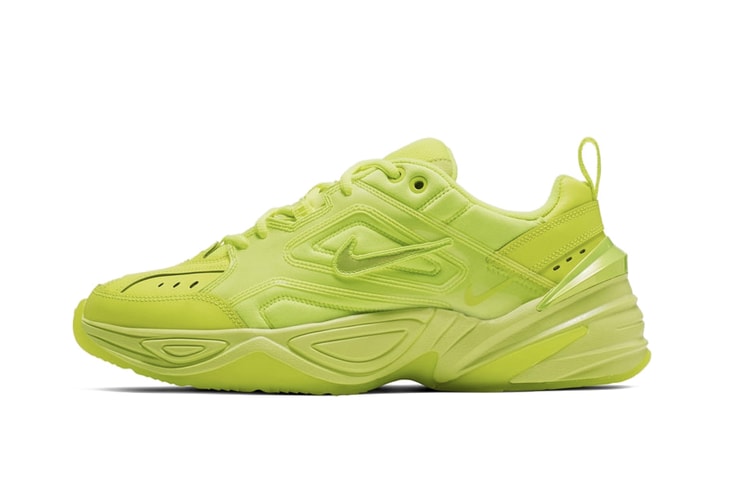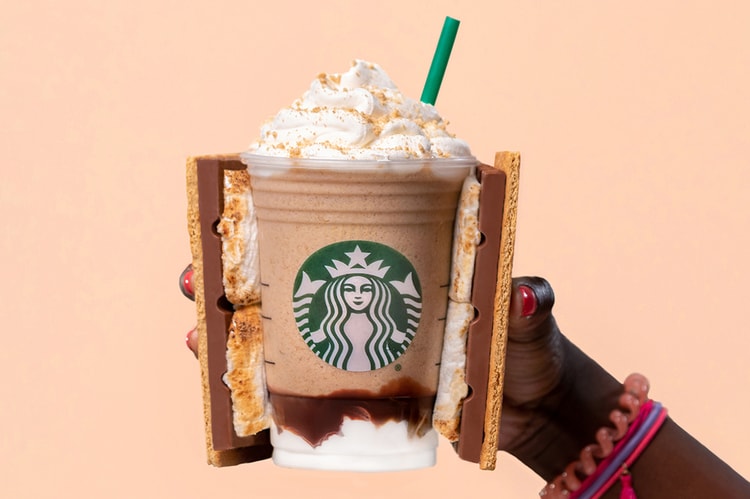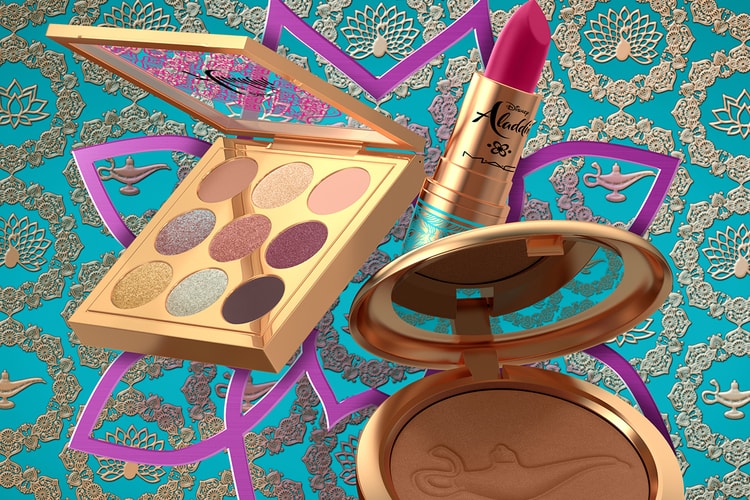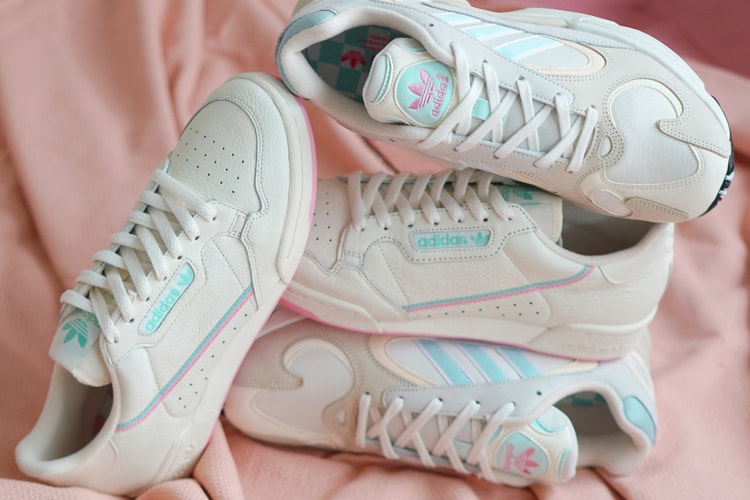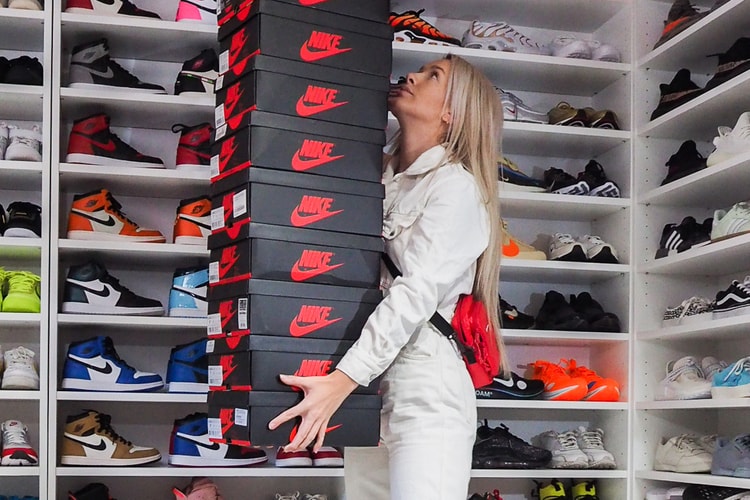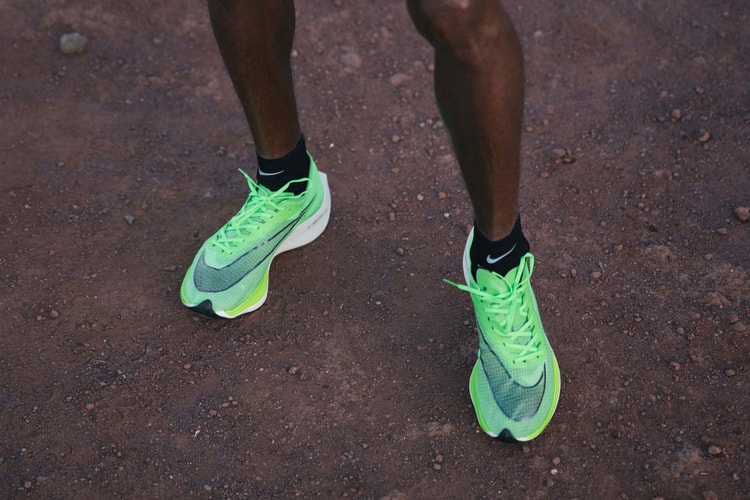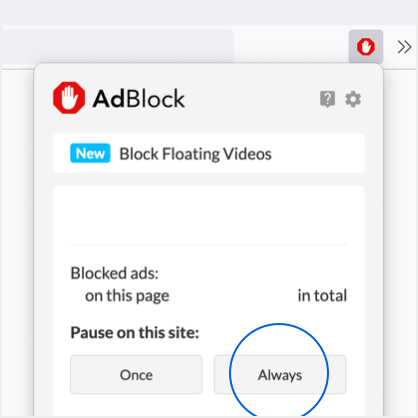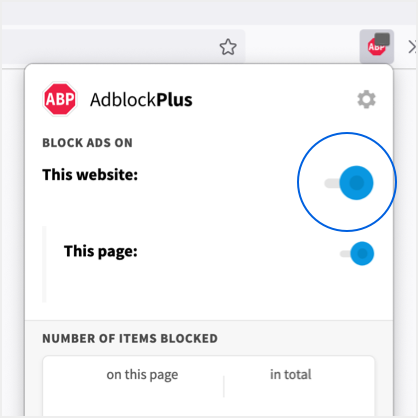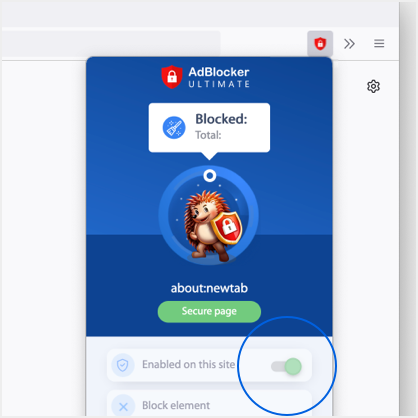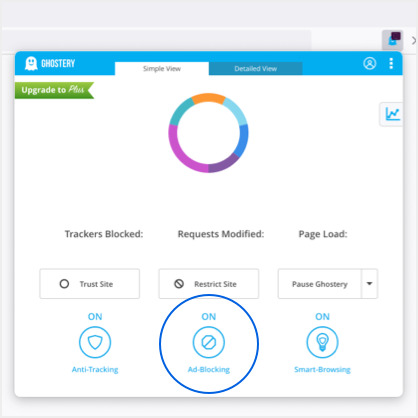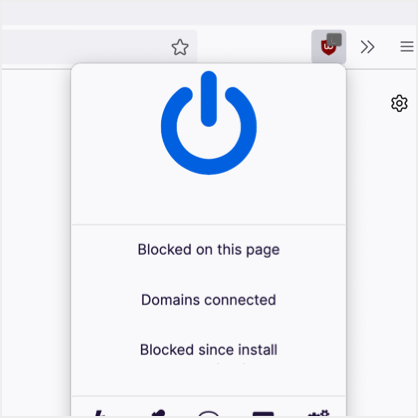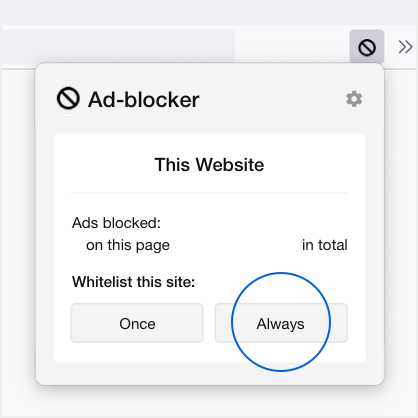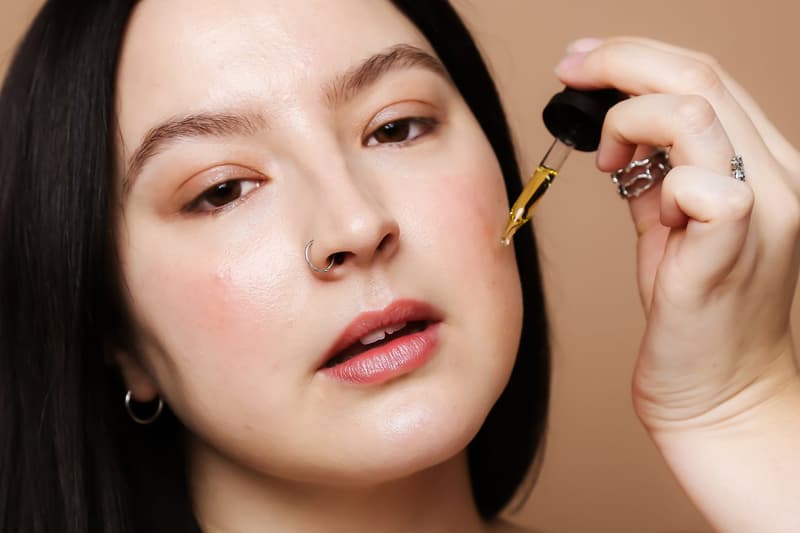
Disciple’s Dreamy Skin Retinyl Oil?
Everything you need to know about the latest buzzword in beauty and wellness.
The beauty industry revolves around trends and buzzy new ingredients and it seems the latest word we’ve seen creep into the world of cosmetics and wellness is CBD. Between Milk Makeup’s cult KUSH Mascara and recent How did it just randomly gain popularity as well as long-standing hemp ranges from the likes of The Body Shop, the use of cannabis-derived ingredients seems to be on the rise. However, the self-proclaimed “Miracle Molecule” itself, CBD, with alleged benefits including the reduction of stress and reduced inflammation of the skin can be confusing for the uninitiated. Is it legit? How do you use it? How much should you take and how often? And of course, the age-old question for any trendy ingredient you consume– is it safe?
CBD has been a little more prevalent in the U.S. in recent years, although it seems to have crept into other countries, like the UK both quietly and quickly. To help clear up the confusion, we sat down with psychotherapist and founder of holistic beauty brand Disciple, Charlotte Ferguson, to find out more about what CBD oil actually is, how it works and why it got so damn popular seemingly overnight. Read on as she helps us break down some common misconceptions about CBD effects and use in skincare and mental health; don’t forget to check out our review of Disciple’s Dreamy Skin Retinyl Oil too.
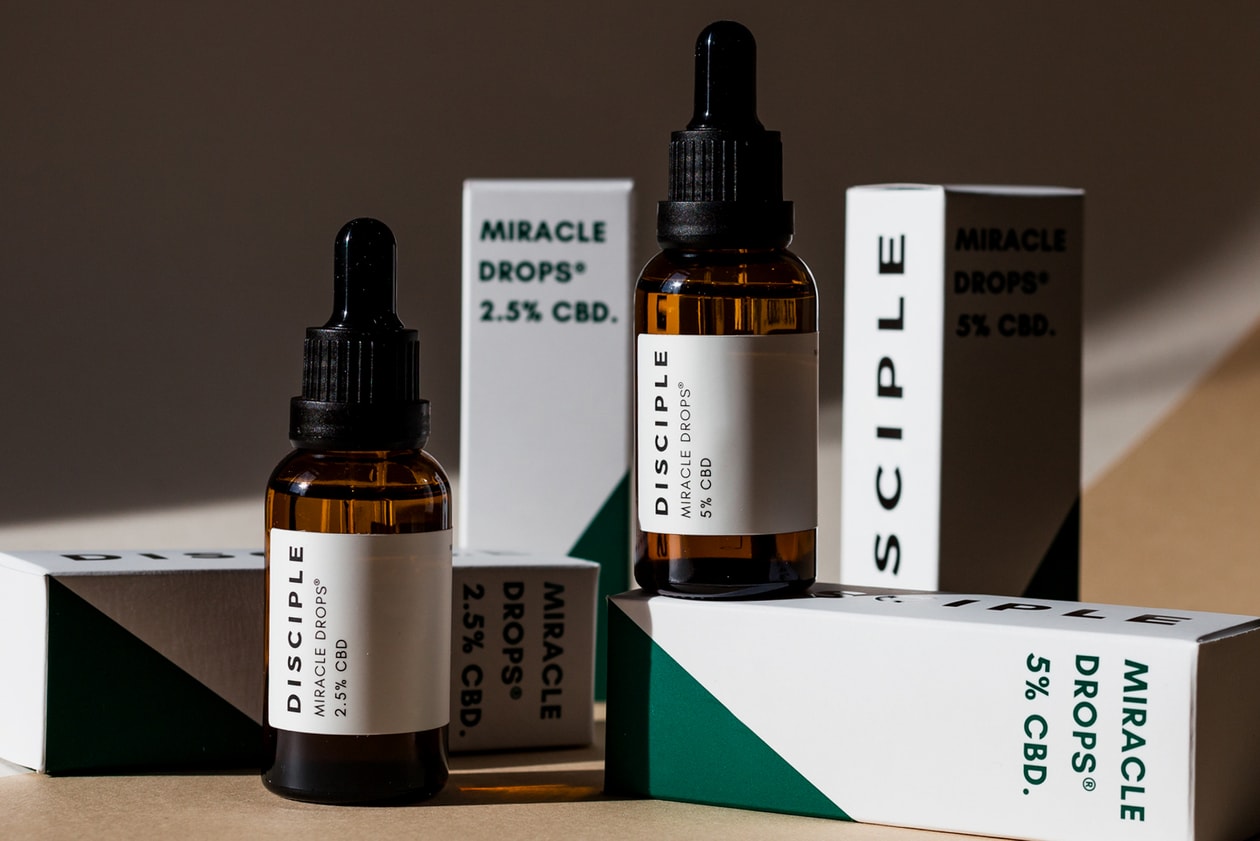
DISCIPLE
Is CBD oil natural? How is it made?
CBD is basically a compound. In the hemp plant and flowers, there are over 100 different compounds and they all do different things. The bit that gets you high, thats THC and CBD is also one of the compounds. Weed has got all the compounds in but when it comes to hemp plant; hemp oil is totally different because hemp oil is kind of like olive oil; it’s made from the seeds. So you basically cold-press the seeds and oil comes out – you can do that with pretty much any seed.
CBD itself is compound that connects to the receptors in your body that are attached to your central nervous system. We actually have an endocannabinoid system which is a set of receptors in our body designed for cannabis. Thousands and thousands of years ago, we used to produce cannabinoids ourselves in our body as pain relief. Because of evolution, we don’t produce them any more but there are plants that can replace them. It’s the same with a lot of things; that’s how a lot of drugs are developed; we’ve got receptors in our body for them, or we can produce them ourselves.
rdquo; to &ldquo?
THC isn’t legal in this country (the UK) so everything needs to have less than 0.2% THC. No CBD that you can buy in this country is going to get you high.
CBD connects with the receptors in your body and can help with all that really good stuff in a natural way without getting you high. It’s non-addictive, it’s not bound to any receptors – it’s just processed by them. It’s the miracle molecule! Scientists call it the “boy scout molecule” because they say it does the right thing at the right time. I always think it’s about what your intention is, but it also knows what you intrinsically need so it can help with mental clarity.
“Scientists call it the “boy scout molecule” because they say it does the right thing at the right time.”
Share this article?
When you apply CBD to your skin it’s really good for acne, it’s really good for inflammation and that includes free radicals, which are about ageing. It can do a lot when it comes to beauty and applied topically, it’s really good for pain as well.
How did it just randomly gain popularity?
We get anxious because of the way think about things often, or because of things that have happened to us in the past and CBD is not going to get rid of those things but it does help with the physical symptoms. I think that gives you a bit of distance between you and your anxiety. Also, it’s massively anti-inflammatory and when you’re stressed or anxious, your body releases lots of cortisol and other hormones like adrenaline. Your body can deal with short, sharp bursts of cortisol, so like when something bad happens, you get the cortisol rush. If you’ve got a low-level anxiety all the time, which I think a lot of us have, you’ve constantly got this drip of cortisol coming out of your adrenals and that causes long-term chronic inflammation in the body.
Inflammation has been linked to everything from cancer to Alzheimers. It’s a new phenomenon and because we’ve never really had it before so doctors don’t know how to treat it. Reducing inflammation is going to be one of the most important things for us to do; the World Health Organization said that stress is the “health epidemic of the 21st century”. One of the most powerful anti-inflammatories you can use is CBD; it’s just like this amazing gift from nature.
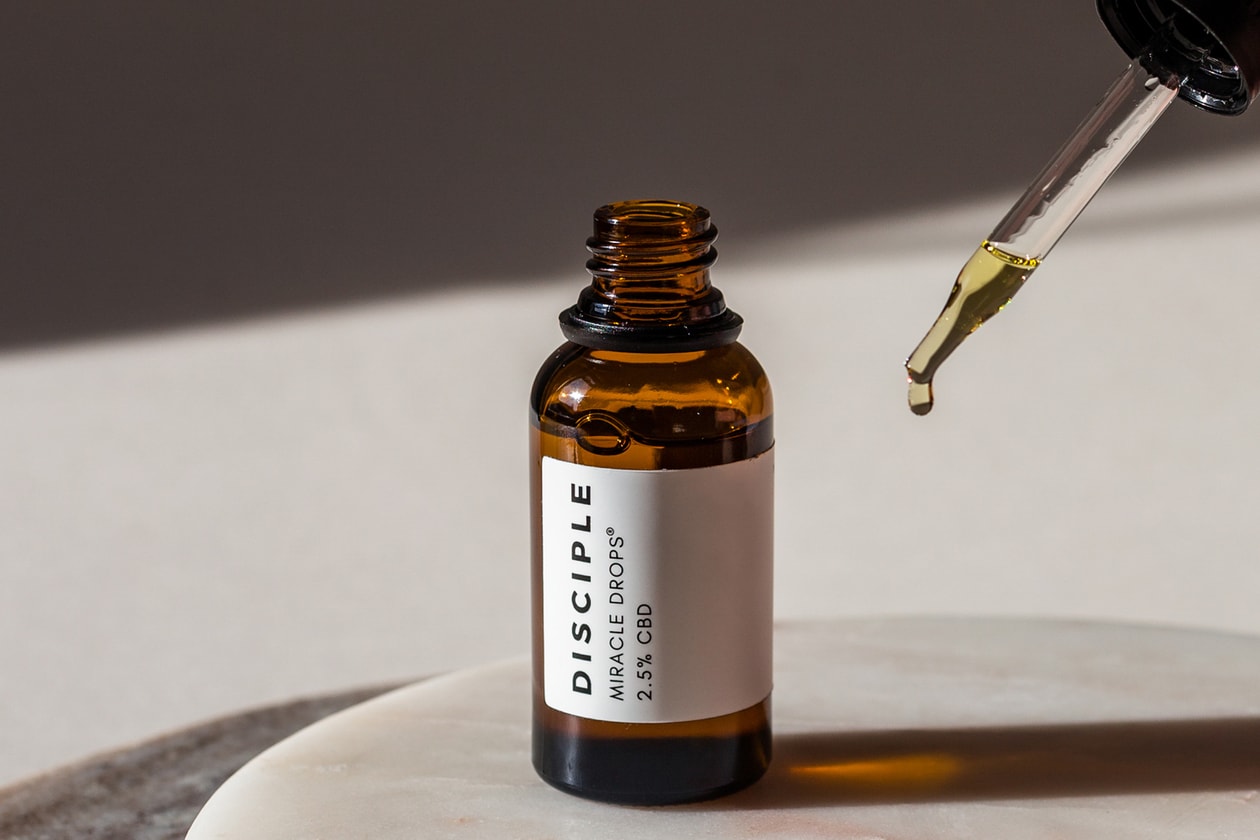
DISCIPLE
How did it just randomly gain popularity?
I think there is that whole edge of people who are into stuff. I know people who are quite hippy – they’re not massive counter-culture people – but they’re into that sort of natural vibe and they’ve been using it for like 10 years. It’s existed here but I think beauty was one of the things that really kicked it off. There are some skincare companies that use it and use it really well and others that just use it as a gimmick. Beauty is a really good way of discovering it.
I first discovered it 5-6 years ago in California; it seems to be the kind of place where things just emerge. So I started using it there for anxiety and period pain. Also in my psychotherapy practice, I had a couple of clients who had chronic pain and anxiety and depression linked to chronic pain and they self-medicated using cannabis. Once CBD oil started coming out more in America, some of them started using it for pain and they noticed that it helped with anxiety, panic disorder and insomnia.
All of the stuff that’s traditional as a given as an adult; buying a house, having a safe, secure relationship and a secure job. None of that is a given any more. So there’s this real drive from this exterior world of traditional ownership of things to reflecting inwards and focusing on oneself. Which makes sense, it’s like a natural process. The world doesn’t work like that any more; the only thing I am in control of is my health and wellbeing. CBD is a massive part of that; it’s taking control of your own health.
“One of the most powerful anti-inflammatories you can use is CBD; it’s just like this amazing gift from nature.”
Why is there so much scepticism and misinformation around CBD?
It’s really confusing and it’s really difficult as a consumer. For example, on Amazon, you’re not allowed to sell CBD but there are hundreds of people selling CBD but they don’t list it as CBD, they list as hemp oil so its under the radar.
Once the NHS and pharmaceuticals get on board then the public will be much more informed. There will be a lot more money for research. Of course, pharmaceuticals getting on board is a good and a bad thing. It’s good because there will be lots of money for research, they’ll want to prove the hypothesis that CBD is really good for these things. I think that will help GPs and other practitioners be more inclined to at least recommend CBD.
It feels to me like, in one way, completely abstract but in one way, completely obvious. People have used it for thousands of years, it’s a completely natural plant. There’s also the micro-wellness trend of using essential, crystals or CBD for treating inflammation in your body – those are three things that are on the rise. I just always think the universe sends you the right thing at the right time. CBD was only really cornered as the thing that works for inflammation in the late ’60s, early ’70s, so we’ve known that it works, we haven’t had the science.



